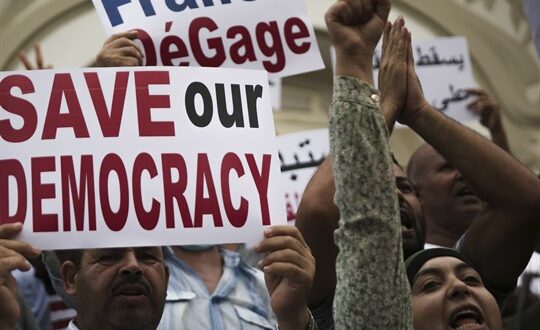On Wednesday, Tunisia announced that it had restored its pandemic-era restrictions, imposing a 10 p.m. curfew and banning all gatherings for two weeks. According to President Kais Saied’s government, the decision was made in order to combat the recent, rapid spread of the coronavirus’s omicron variant. Yet the timing was suspect. It came merely two days before rival political parties were scheduled to lead a massive demonstration against Saied’s concentration of power in his own hands. The main opposition party, Ennahda, immediately promised to defy the ban and called for its supporters to demonstrate anyway.
Tunisia is not an isolated case. Since the beginning of the pandemic, scholars have argued that COVID-19 policy responses could mask illiberal political agendas, especially in fragile democracies and autocracies. In the spring of 2020, government-mandated lockdown measures forced burgeoning protest movements in Iraq, Lebanon and a variety of other countries to either hit pause or disband. State security forces often enforced the bans by engaging in widescale violence against the protesters and civilians that defied them. Meanwhile, many “would-be autocrats” used the coronavirus pandemic as an excuse to increase their own influence by, for example, granting themselves sweeping emergency powers.
 Eurasia Press & News
Eurasia Press & News




